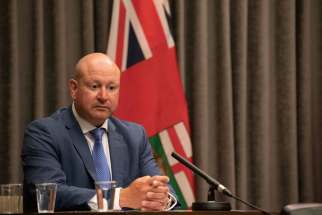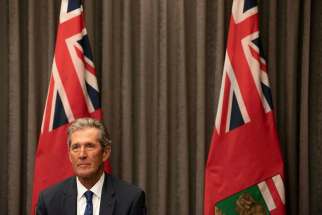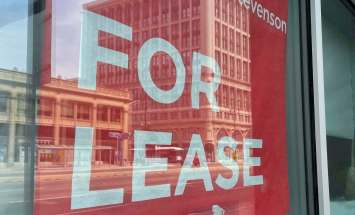Pandemic-induced inflation hasn’t yet arrived
Read this article for free:
or
Already have an account? Log in here »
To continue reading, please subscribe:
Monthly Digital Subscription
$0 for the first 4 weeks*
- Enjoy unlimited reading on winnipegfreepress.com
- Read the E-Edition, our digital replica newspaper
- Access News Break, our award-winning app
- Play interactive puzzles
*No charge for 4 weeks then price increases to the regular rate of $19.00 plus GST every four weeks. Offer available to new and qualified returning subscribers only. Cancel any time.
Monthly Digital Subscription
$4.75/week*
- Enjoy unlimited reading on winnipegfreepress.com
- Read the E-Edition, our digital replica newspaper
- Access News Break, our award-winning app
- Play interactive puzzles
*Billed as $19 plus GST every four weeks. Cancel any time.
To continue reading, please subscribe:
Add Free Press access to your Brandon Sun subscription for only an additional
$1 for the first 4 weeks*
*Your next subscription payment will increase by $1.00 and you will be charged $16.99 plus GST for four weeks. After four weeks, your payment will increase to $23.99 plus GST every four weeks.
Read unlimited articles for free today:
or
Already have an account? Log in here »
Hey there, time traveller!
This article was published 03/08/2021 (1588 days ago), so information in it may no longer be current.
Consumer prices in Canada are doing just fine, Statistics Canada showed in its price survey in June. The dreaded explosion of inflation may yet come about. Up to now, however, the government and the Bank of Canada are getting away with their enthusiastic borrowing and spending to ease the pain of the COVID-19 pandemic.
Prices in June were up 3.1 per cent from the same month the year before, the federal statistics agency found in its July 28 report, mostly because of sharp increases in prices for new houses and used cars. Beef, pork and some fresh vegetables were down, as were cell phone bills. Over the whole economy, the general level of prices was picking up where it left off in February 2020, just before the pandemic shut down wide sections of Canadian industry.
Because of the inflation that afflicted Canada, the U.S. and Europe in the 1970s, central banks since then had focused on maintaining price stability by limiting growth of the money supply. Once the pandemic struck in March 2020, however, governments and central bankers tossed out the old rule book.
Justin Trudeau’s government in Canada and Donald Trump’s administration in Washington borrowed massively from their central banks to pay benefits to families and businesses affected by lockdowns. New finance ministers took charge in both capitals. Chrystia Freeland replaced Bill Morneau in Ottawa. Janet Yellen replaced Steve Mnuchin in Washington. The heavy borrowing and spending by both governments continued. People who remembered the inflation of the 1970s warned that these free-spending ways would lead to soaring consumer prices.

They may be right, but it hasn’t happened yet. Canada’s 3.1 per cent consumer price rise over the last 12 months is mainly recovery from last year’s COVID-19 economic shock. The latest U.S. consumer price rise at 5.4 per cent was more worrisome, but not yet alarming.
The more startling feature of the post-pandemic recovery is labour shortage. Many of the workers who were laid off from retail, restaurant, hotel and other low-paid jobs have made other arrangements and are not reappearing for work when the stores and restaurants re-open.
Some commentators believe this reflects a drop in immigration resulting from the pandemic: the jobs immigrants would have filled are remaining vacant. Others think it’s because government benefit programs were too generous, paying people not to work.
Whatever the cause, the effect is dramatic. McDonald’s restaurants, a huge employer of entry-level workers, announced pay increases of around 10 per cent in company-owned (as opposed to franchised) restaurants in the U.S. Other employers in Canada have been offering signing bonuses of $500 or $1,000 to new hires. In Manitoba, nurses have been resigning in droves for a variety of reasons, leaving hospitals short-staffed.
These COVID-19-era stresses may have lasting effects on pay, hours and working conditions.
These COVID-19-era stresses may have lasting effects on pay, hours and working conditions. Workers who have been hearing all through the pandemic months that they were essential to the nation and must accept the risks of infection at work are likely to look for some monetary expression of their importance.
Workers who are offered a signing bonus with their first paycheque may start to feel, as the weeks go by, that some fresh top-up would be in order. If a competing firm across the street is offering a signing bonus, mobility may seem like the quickest way up the pay scale.
Through these and other mechanisms, workers may find that the pandemic has suddenly increased their bargaining power. As a consequence, labour shortage may yet spur the long-expected inflation.







